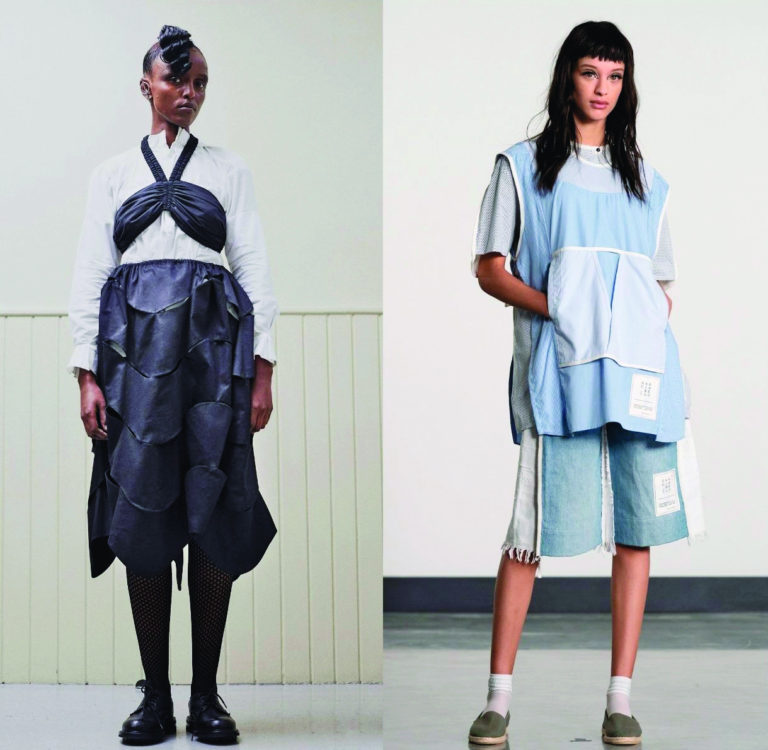Sustainability has always been the mantra of Phoebe English. Men’s and women’s garments made from organic cotton, biodegradable natural rubber, buttons made from milk protein or palm nuts and nylon produced with plastic found in the oceans. But that wasn’t enough. After taking some time away from the fashion scene to dedicate herself to learning in depth about green production techniques, Phoebe English has returned in recent years with a renewed ecological purpose because – as she declares – “we are the problem and we are the solution, if we don't evolve now, later we die .”
For the FW20-21 collection the step was rather extreme, deciding to make it with zero waste and minimal use of sewing thread, using only materials and accessories already present in London, the designer’s base, thus eliminating the carbon footprint derived from the production and transport of materials. And that’s not all: English called on London designers to contribute with the leftover fabrics they already had in their ateliers so that no virgin resources would be used. Ten of them came forward to help create her collection, names such as Katharine Hamnett, Thornton Bregazzi and Martine Rose among others. A successful experiment, which also uncovers the utopia of a large fashion community from which one can draw resources and help.
Argentine designer Juliana Garcia Bello of Garciabello has also been creating her women’s collections with a gender fluid touch from zero waste, focusing on the upcycling and deconstruction/reconstruction of garments, all handmade by the designer in limited numbers. Now based in Arnhem (the Netherlands), the designer is inspired by the concept of 'home' as both land and a refuge and by the emotions evoked by her childhood memories in Terra del Fuego. She has long been collaborating with various textile cooperatives and small producers from whom she purchases organic cotton and leftover raw materials.
The new collection, which won the REDRESS Award 2020 in the "womenswear" category, is called "Herencia" (“inheritance”) and was created using discarded textiles donated by her neighbours, who contacted her thanks to the flyers she attached to all the doors in the neighbourhood, including her own. The designer then selected used t-shirts, tablecloths, shirts and pieces of denim, also chosen based on their biodegradability, and cut them up to create fifteen new looks in a perfect balance of circular economy. This wonderful initiative has also allowed her to learn about different cultures and make new friends. “I always like to know who the garments I work with belong to, they tell me their story,” says Juliana Garcia Bello.
Her goal is to underline and express the importance of the relationship we have with the clothes we wear, to which we should all attach an emotional value in order to understand that re-using them is fundamental for the future of the planet. Her dream is to be able to teach new generations to think and create in a sustainable way, always remembering their origins.



